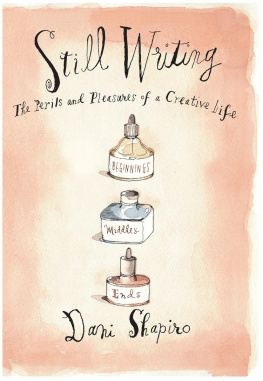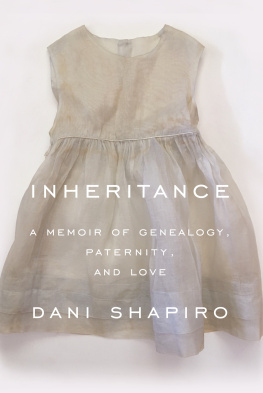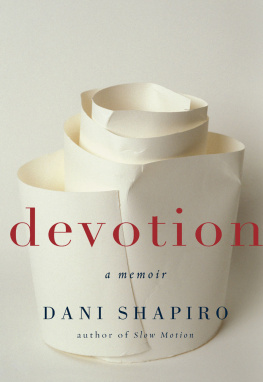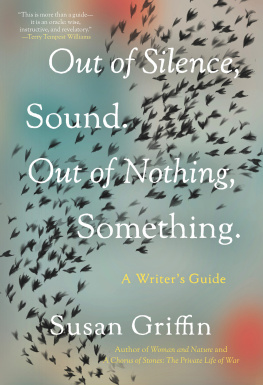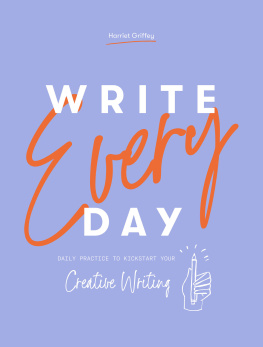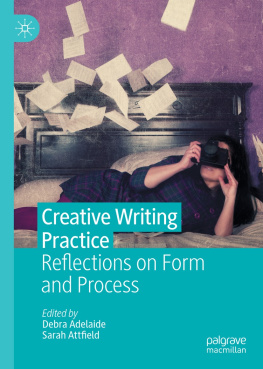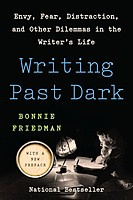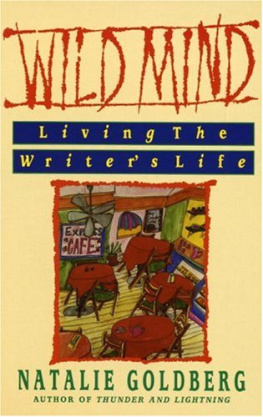
S TILL W RITING
The Pleasures and Perils of a Creative Life
Also by Dani Shapiro
Devotion
Black & White
Family History
Slow Motion
Picturing the Wreck
Fugitive Blue
Playing with Fire
S TILL W RITING
The Pleasures and Perils of a Creative Life
B Y D ANI S HAPIRO

Atlantic Monthly Press
New York
Copyright 2013 by Dani Shapiro
Jacket design and illustration by Barry Blitt
All rights reserved. No part of this book may be reproduced in any form or by any electronic or mechanical means, including information storage and retrieval systems, without permission in writing from the publisher, except by a reviewer, who may quote brief passages in a review. Scanning, uploading, and electronic distribution of this book or the facilitation of such without the permission of the publisher is prohibited. Please purchase only authorized electronic editions, and do not participate in or encourage electronic piracy of copyrighted materials. Your support of the authors rights is appreciated. Any member of educational institutions wishing to photocopy part or all of the work for classroom use, or anthology, should send inquiries to Grove/Atlantic, Inc., 154 West 14th Street, New York, NY 10011
or .
Published simultaneously in Canada
Printed in the United States of America
Excerpt from The Eye of the Skull from That Kind of Danger, by Donna Masini. Copyright 1994 by Donna Masini. Reprinted by permission of Beacon Press, Boston.
Excerpt from Everything I Know About Writing Poetry from A Hundred White Daffodils, by Jane Kenyon. Copyright 1999 by The Estate of Jane Kenyon. Reprinted with the permission of The Permissions Company, Inc., on behalf of Graywolf Press, www.graywolfpress.org .
Excerpt from The Sense of an Ending, by Julian Barnes. Copyright 2011 by Julian Barnes. Published by Alfred A. Knopf, New York, NY. Originally published in Great Britain by Jonathan Cape, an imprint of the Random House Group Limited, London, in 2011.
Excerpt from interview with Marilynne Robinson taken from The Paris Review Interviews, Vol. IV . Copyright 2009 by The Paris Review .
ISBN-13: 978-0-8021-2140-0
eBook ISBN: 978-0-8021-9343-8
Atlantic Monthly Press
an imprint of Grove/Atlantic, Inc.
154 West 14th Street
New York, NY 10011
Distributed by Publishers Group West
www.groveatlantic.com
In Memory of Grace Paley
I have to get lost so I can invent some way out.
David Salle
S TILL W RITING
The Pleasures and Perils of a Creative Life
INTRODUCTION
Ive heard it said that everything you need to know about life can be learned from watching baseball. Im not what youd call a sports fan, so I dont know if this is true, but I do believe in a similar philosophy, which is that everything you need to know about life can be learned from a genuine and ongoing attempt to write.
At least this has been the case for me.
I have been writing all my life. Growing up, I wrote in soft-covered journals, in spiral-bound notebooks, in diaries with locks and keys. I wrote love letters and lies, stories and missives. When I wasnt writing, I was reading. And when I wasnt writing or reading, I was staring out the window, lost in thought. Life was elsewhereI was sure of itand writing was what took me there. In my notebooks, I escaped an unhappy and lonely childhood. I tried to make sense of myself. I had no intention of becoming a writer. I didnt know that becoming a writer was possible. Still, writing was what saved me. It presented me with a window into the infinite. It allowed me to create order out of chaos.
Of course, theres a huge difference between the scribblings of a young girl in her journalsI would never get out from under my bed if anyone were ever to read themand the sustained, grown-up work of crafting something resonant and lasting, a story that might shed light on our human condition. The good writer, Ralph Waldo Emerson noted in his journal, seems to be writing about himself, but has his eye always on that thread of the universe which runs through himself and all things.
Sitting down to write isnt easy. A few years ago, a local high school asked me if a student who is interested in becoming a writer might come and observe me. Observe me! I had to decline. I couldnt imagine what the poor student would think, watching me sit, then stand, sit again, decide that I needed more coffee, go downstairs and make the coffee, come back up, sit again, get up, comb my hair, sit again, stare at the screen, check e-mail, stand up, pet the dog, sit again . . .
You get the picture.
The writing life requires courage, patience, persistence, empathy, openness, and the ability to deal with rejection. It requires the willingness to be alone with oneself. To be gentle with oneself. To look at the world without blinders on. To observe and withstand what one sees. To be disciplined, and at the same time, take risks. To be willing to failnot just once, but again and again, over the course of a lifetime. Ever tried, ever failed, Samuel Beckett once wrote. No matter. Try again. Fail again. Fail better. It requires what the great editor Ted Solotoroff once called endurability . It is this quality, most of all, that I think of when I look around a classroom at a group of aspiring writers. Some of them will be more gifted than others. Some of them will be driven, ambitious for success or fame, rather than by the determination to do their best possible work. But of the students I have taught, it is not necessarily the most gifted, or the ones most focused on imminent literary fame (I think of these as short sprinters), but the ones who endure, who are still writing, decades later.
It is my hope thatwhether youre a writer or notthis book will help you to discover or rediscover the qualities necessary for a creative life. We are all unsure of ourselves. Every one of us walking the planet wonders, secretly, if we are getting it wrong. We stumble along. We love and we lose. At times, we find unexpected strength, and at other times, we succumb to our fears. We are impatient. We want to know whats around the corner, and the writing life wont offer us this. It forces us into the here and now. There is only this moment, when we put pen to page.
Had I not, as a young woman, discovered that I was a writer, had I not met some extraordinarily generous role models and teachers and mentors who helped me along the way, had I not begun to forge a path out of my own personal wilderness with words, I might not be here to tell this story. I was spinning, whirling, without any sense of who I was, or what I was made of. I was slowly, quietly killing myself. But after writing saved my life, the practice of it also became my teacher. It is impossible to spend your days writing and not begin to know your own mind.
The page is your mirror. What happens inside you is reflected back. You come face-to-face with your own resistance, lack of balance, self-loathing, and insatiable egoand also with your singular vision, guts, and fortitude. No matter what youve achieved the day before, you begin each day at the bottom of the mountain. Isnt this true for most of us? A surgeon about to perform a difficult operation is at the bottom of the mountain. A lawyer delivering a closing argument. An actor waiting in the wings. A teacher on the first day of school. Sometimes we may think that were in charge, or that we have things figured out. Life is usually right there, though, ready to knock us over when we get too sure of ourselves. Fortunately, if we have learned the lessons that years of practice have taught us, when this happens, we endure. We fail better. We sit up, dust ourselves off, and begin again.
Next page
